Cold start. NPR-style obituary slug:
Joni Cook, my dog and best friend, passed away Saturday evening at her home in Indianapolis. She was 13 years old.
Boxers are a special breed of dog because they crave human companionship in a way that can (and often does) border on the obsessive.
That’s true of many dogs, but for Joni it was just who she was. She never let me out of her sight, if she could help it. When she was young and spry, she would follow me from room to room, just waiting to see what I was going to do next. When I cooked or made a sandwich, she was there. Waiting for a stray bit of food to fall or the cold cut she knew I would drop into her open mouth. Anticipating my every move.
Years later, when I moved into the too-big house in Indy’s Old Northside, with way too many sets of stairs, she would haul her frail little body up the steep steps no matter what. Just to see what I was up to. And, naturally, to make sure I wasn’t going anywhere without her.
Joni had abandonment issues, but who can blame her? We will get to that.
She was a mama dog through and through. When she found me, back in 2011, Joni was a pitiful sight. Just recently postpartum, her teats were still swollen with milk, and yet she had been severely neglected and left to die. She weighed 28 pounds.
Puppy mills mean big money in rural places like eastern Kansas, where I lived at the time with my first wife, Ashley, who is now a successful freelance writer with a long list of highbrow bylines. Joni had certain qualities, like her all-white coat, that made her attractive to dog breeders. In the rural parts of the US, where economic opportunities are scarce and sensibilities about animal welfare are stuck in the 19th century, even beloved family pets often lead stark and difficult lives. Dog breeders of this sort aren’t exactly known for reading Peter Singer or keeping animals indoors to survive the brutal winters on the Great Plains. All of that is to say that when Joni came into my life, our lives, she was already, at just a year or so old, nearly on the brink of death.
We (my first wife and I) found her on a walk. She had been chained to the bumper of an old, immobile pickup truck at an abandoned house near were we lived at the time in Fort Scott, Kansas. I was in my second year as an assistant professor of English at Cottey College, a women’s liberal arts college just over the state line in southwest Missouri. In those parts, it’s pronounced “Mizz-ura,” emphasis on the second and third syllables.
Joni was an unusual specimen of dog—a white boxer with heterochromia. One eye was a beautiful shade of cerulean blue, the other was regular dog-eye brown. The contrast inspired commentary. Upon meeting her, people would say things like, “Look, a David Bowie dog!” Or, if a child, “Look, that dog has two different colored eyes!” She was a startlingly beautiful dog.
But that was just what you could see on the surface. She was beautiful on the inside, too.
When we found her she was mangy and starving. Her little ribs protruded like an accordion down the length of her narrow torso. Her bulbous boxer chest was shriveled, like someone had let the air out of a balloon. She was filthy. The people who had “cared” for her—and then left—presumably kicked off the property, or arrested, or perhaps blown to kingdom come by a malfunctioning meth lab, had long gone. And rather than turn her in, they had simply attached Joni to the bumper of this truck. With a little styrofoam takeout container filled with brackish water, and another with what had been kibble.
She had a friend with her, too. A black and brown mutt of indeterminate breed who, sadly, didn’t make it. He was picked up by the city and presumably euthanized.
Joni did make it, thanks to our neighbor, Darlene, an upstart, semi-retired emergency room nurse in her sixties who fit all of those stereotypes long-time nurses come to embody. She was tough, loud, very no-nonsense. She was originally from New Orleans and made killer muffuletta sandwiches with red beans and rice. She punctuated her speech with creole words and phrases. She took long walks and drank red wine from a thermos. She told you exactly what she was thinking and didn’t spare anyone’s delicate sensibilities.
Darlene took a shining to me and Ashley, in part, I believe, because we were animal lovers who already had one white boxer, Gus, and the three cats: Gitmo (who passed away in 2016), Chess, and Fran. I also think she found something cosmically fitting about giving a white boxer to a couple who already had a white boxer, as though somehow matching the breed would make having two dogs easier.
Whatever the reason, Darlene was most definitely an animal lover. And one night, after everybody was asleep, she went over to this abandoned property and freed Joni with a pair of bolt cutters.
Early the next morning—a Saturday in October 2011 that I still remember vividly—Darlene appeared at our back door.
“I’ve got your next dog. She’s over at my house right now. I’ll get her cleaned up for you and bring her back in a couple of days.”
In the summer of 2016, Joni and I drove to Philadelphia to protest what the DNC had done to Bernie Sanders and, later, by extension, the entire country, pitting a longtime Washington insider who nobody liked against a sociopathic liar, admitted rapist, and accomplished narcissist. The Democratic National Convention was in late July that year, and Philadelphia was hot as blazes. Steam came right up off the sidewalk like a sauna. Every day the sun scorched everything in sight. Joni was an all-white dog with sun-sensitive skin and a short snout, so we had to be careful. The marching was worthwhile, I think, if for no other reason than it let us register our complaint with democracy before the entire country descended into a kind of madness from which it has yet to extricate itself. But the best part of the trip was the drive.
To get from Indiana to the East coast, you drive through some of the most beautiful country in the United States: the area around Wheeling, West Virginia; the Alleghenies, and the Monongahela valley. Heck, as much as it pains me to say it, even parts of southern Ohio have their charms. We’d stop every couple of hours so that Joni could pee and sniff the air of a new and strange ecosystem. Sometimes she’d put her head out the backseat window like a dog in a cheesy commercial.
When she was young—that summer she would have been no more than five or six—Joni went practically everywhere with me. If I was driving, she was there, alternating between snoozing in the backseat and begging me to roll up the windows and crank the A/C. Joni was an air-conditioning dog, but, like me, she also had a bit of the vagabond in her. Like the song says, she was an “air-conditioned gypsy.” And we both appreciated the trip more than the destination. In those days, I hadn’t yet wrecked my old Toyota on black ice outside of Fort Wayne, and I maintain to this day that the backseat of the Camry, with its worn-supple leather seats and super-charged A/C was Joni’s favorite spot of all the cars I’ve owned.
When COVID hit, the two of us hit the road. IU went fully online in March 2020, I had someone reliable to check on my cats, and there was better weather and a place to stay in South Carolina. So for several months, as spring turned to summer, we split our time between the South and the Midwest, driving back and forth, spending a night or two in the Great Smoky mountains, getting our hopes up about Gatlinburg (as one does), only to have them dashed by the dingy reality of it.
It was that spring that I met Kaylin. We never would have met had COVID not happened. (Then again, you could say that about a lot of things, good and bad.)
I didn’t know it at the time, but my life was about to take an interesting turn. By the end of 2021, I was married (again). By the end of 2023, I was divorced.
Joni was there for it all.
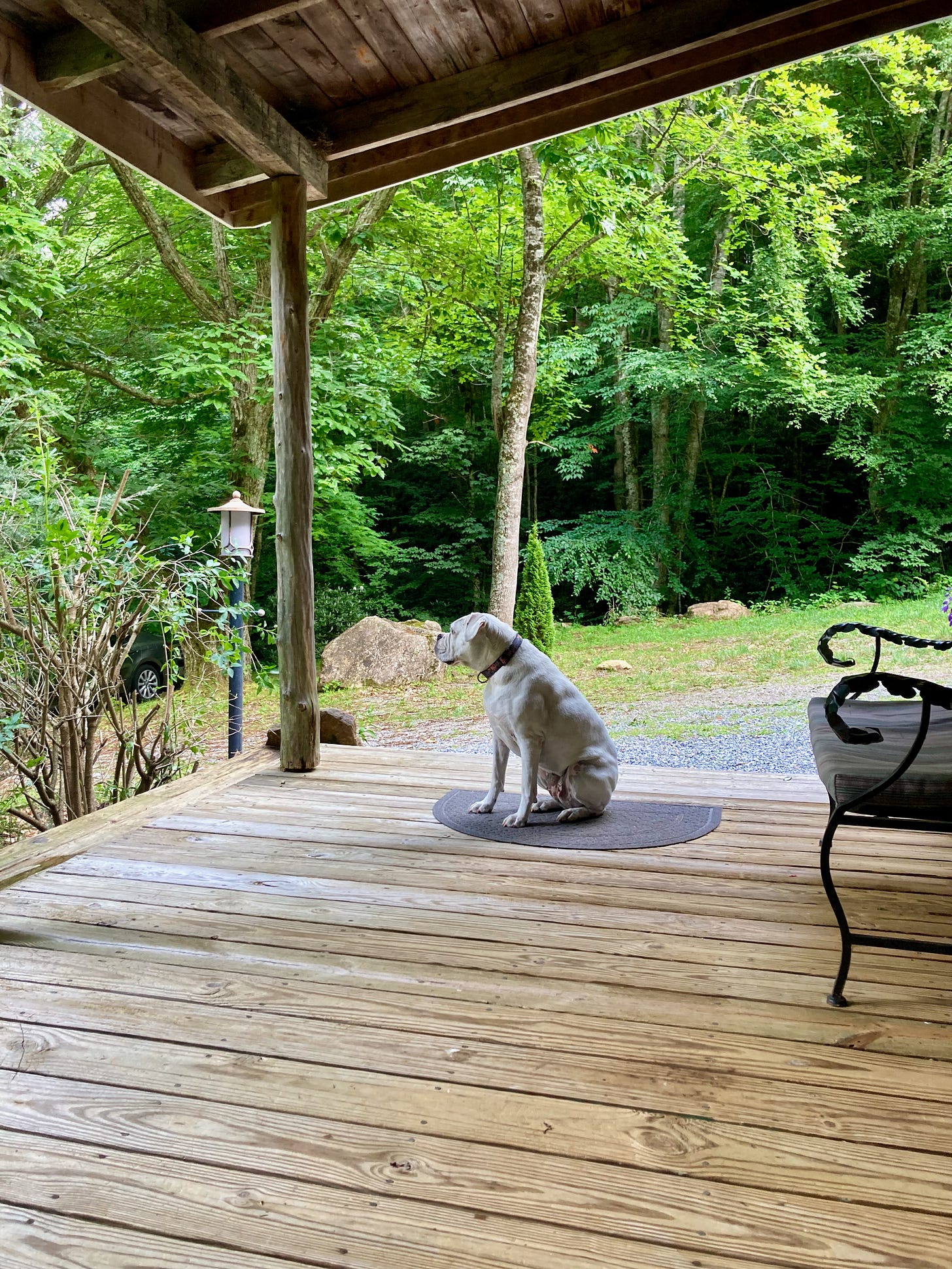

Ashley and I were adamant, at first, that we already had a dog, and that one oversized, roided-out hound (and three cats) was more than enough. Darlene just didn’t seem to care.
Gus was also a white boxer—a “classic” boxer, we always said—with the nervous temperament and aggressive hyperactivity common to the breed. Gus and Joni couldn’t be more different, aside from the fact that they were both full-blooded white boxers. But they loved each other from day one.
Boxers are loving dogs and terrific companions, of course, but Gus required a tremendous amount of attention and exercise. If you tried to ignore him for too long, he would get aggressive. I can remember trying to work in my office and Gus ambling over to poke his giant head into my ribs. “Let’s go outside,” he’d say. “It’s time. You’ve been working long enough.” If he didn’t get a response, he would start barking until you took him out for frisbee or a long walk.
Gus was a physical specimen. He was close to six feet tall on his hind legs, and weighed around 85 pounds. He was nothing but lean muscle mass. When we took him to the park, he could leap up six or seven feet in the air and catch a frisbee like an NFL receiver. He never missed. Not once.
All of that is to say that we felt justified in telling Darlene that we had our hands full with pets. Gus alone was plenty of dog for two working adults.
Yes, we agreed that Joni was adorable, and yes, it was wonderful that Darlene had rescued her, but we just didn’t have the bandwidth to take on another one.
Surely, we reasoned, Darlene would understand. She’d work her connections and find Joni a good home.
By Halloween, Joni was living with us on a foster basis. “We’ll find her a good home,” we told ourselves.
By Thanksgiving, she was ours.
In the spring of 2014, Ashley and I split up. Two years in Indiana (with me) was all she could stomach, so she split for greener pastures. She took Gus with her.
Suddenly, and, it must be said, rather unexpectedly, it was just me and Joni.
I’ve written about this before: the “politics,” for lack of a more precise term, surrounding who gets which animal in the event of a break up. It’s touchy, and the rules have never seemed clear to me. Ashley and I had acquired Gus together, as a married couple, when we moved to Kansas in 2010, but now it seemed that Gus belonged to her. We had also acquired two of the three cats together—Chess and Fran—but, again, for vague, alchemic reasons that I am not totally privy to, the cats stayed with me.
To this day, I don’t know if Joni was left behind with me as a sort of token, some recognition that she was “my dog,” or as a kind of consolation prize, or perhaps just because Ashley didn’t want to take both of them. I suppose it doesn’t really much matter. Joni stayed with me, and though I didn’t fully realize it or appreciate it at the time, it turned out to be one of the best things that ever happened to me.
Divorce is hard. And I don’t have the space or emotional patience to get into the particulars here. Suffice it to say that from that point on, and for nearly a decade afterwards, Joni and I took on the world together. Wherever we were, in Kokomo, Indiana or Indy or Aiken, South Carolina or Lexington, Kentucky or Pittsburgh, Pennsylvania or Knoxville, Tennessee or kayaking down the Big Blue River in southern Indiana or camping in the Smokies or somewhere on the road pinging between, she helped to make it feel more like home. Home wasn’t so much a place, it was wherever my white shadow was.
Which is another way of arriving at a truth that I have earned hard and tried to avoid for years. I have never felt at home in Indiana, even though I’ve been in the state for twelve years and that is where I work and where my professional life has taken me. But, it must be said, I don’t feel at home in South Carolina anymore, either. Joni was a glue, of sorts, that helped me make sense of it. When I had her, it made sense that I would stay put, buy a house, make a home. A dog needs a home.
Now that she’s passed on, I am unmoored. Like one of those grizzled, inveterate workaholic business travelers who claim they feel more at home in an airport lounge or hotel room than they do in their own homes. My work as a college professor is increasingly virtual; online classes are quickly becoming the rule rather than the exception. Online meetings became the norm in 2020 (except for when someone tries to get cute and hold an in-person meeting for “team-building” purposes—eye roll).
Indiana holds no charm for me. It’s rather like the South without the food or the weather or the beaches. The politics are red and truly regressive, with little to no hope of ever getting any better. Indiana’s gerrymandered GOP supermajority seems hell-bent on making life miserable for anyone who isn’t either a corporation or a white, straight, cisgendered Christian man. The state ranks near the bottom of every major social and quality of life metric. The majority of my students, as soon as they get their degrees, light out for the territories.
And it’s cold. “Just rightly cold,” as Bob Dylan once said of his hometown of Duluth, Minnesota.
New chapters have a way of prompting me to take stock. What am I doing? What do I want? Where do I belong?
Where do I go from here? “How do I work this?”
The one thing that keeps me “grounded” in place—aside from my increasingly virtual day job—is the fact that I have a standing obligation, since 2020, to bring coolers of Gatorade and water and a tent to Broad Ripple every Saturday morning at 8:00am (7:30am in the summer) for Indy Runners’ weekly group runs. Set it up, carry water, run, tear it down, carry water. Repeat.
That’s not totally true. Something else keeps me in Indiana. I also started working part-time at the local running store. It doesn’t pay well, but I adore the work. I get to talk about running. My co-workers are amazing people. I get deep discounts on running shoes.
I digress. Back to Joni.
Joni never forgot a friend. Even if she hadn’t seen you in years, she’d wag her nub until it nearly fell off when she saw you again. She meant a great deal to me, obviously, but more than that, she meant a great deal to a whole lot of other people, too. Some of these people have come in and out of my life, some have stuck around. All of them remember Joni.
On Saturday evening, I had just returned to my hotel room in Miami Beach after picking up a couple slices of pizza from a NY-style pizzeria down the block.
I flipped on a Netflix true crime documentary about a guy whose online girlfriend went completely bonkers and murdered his other online girlfriend, then shot herself in the leg to pin it on the man’s ex-wife and throw police off her trail. Really uplifting fare.
My phone buzzed.
It was Katie, my wonderful, long-suffering dog-, cat-, and house-sitter. If you know anything about Gen-Z, you know they never, ever pick up the phone to call somebody except for in the direst of emergencies. Like they always say in true crime documentaries, I immediately knew what this call was about.
Joni had passed away earlier that evening while Katie had been out to dinner with friends. When she arrived home from dinner, Joni was dead, though still warm. She had passed away alone on the couch in my living room.
As Katie cried into the phone, it dawned on me that because of the circumstances, I would never see Joni again in the flesh.
I am still figuring out how to handle that one.
Katie said that Joni had slept in late on her last day. When she did rise, she had the zoomies—lots of unusual energy. It was her swan song.
Then Katie and the gang—Joni, Chess, and Fran—all settled on the couch while Katie did her homework and studied. That afternoon, Katie took this picture and sent it to me:
For the last few months, Joni hadn’t been feeling well. She was diagnosed with boxer cardiomyopathy in January. And she had started taking some high-powered meds that were keeping her alive, but they weren’t really helping her heart. They couldn’t actually reverse anything, the vet told me. The best they could do was keep her comfortable for a bit. The message was loud and clear: it was just a matter of time.
Last month I went to Washington for work. Joni nearly died that week while I was out of town. Her heart was losing steam. I knew it at the time. I even called Lap of Love and talked through euthanasia options. I spent 45 minutes on the phone with a very nice lady. She was so accommodating and kind, it almost felt like she was patronizing me.
I’ve known for several weeks that Joni’s time on earth was short. I think Joni knew it, too. I just didn’t have the courage to pull the trigger. So she died while I was away.
My travel buddy, my constant shadow. My best friend.
When she finally went, I wasn’t there. She couldn’t find me.
I snapped this picture of the sunrise over Miami Beach on the morning Joni died. I didn’t know at the time that this would be her last day on earth, of course. But I felt something like a sense of foreboding. Or maybe not. Maybe I am back-projecting.
I never did know where Joni came from, exactly, or even when she was born. One day she was just there, chained to a truck, waiting to become part of my life. I’ve told you her official origin story; I’ve told it so many times over the years it has become rote and banal, like the way people get sick of hearing how their parents met.
But I couldn’t tell you anything more than that. One day I didn’t have Joni in my life, and then one day I did. The older I get, the more it seems that life is just like that. Ones and zeroes. On and off.
Here’s what I do know. February 10, 2024 was her last day on earth, and she’s gone. I don’t know where she is now. I wish I did. I’d like to see her one more time.
In closing, I just have a small favor to ask. Well, maybe a couple.
If you were lucky enough to know Joni, and if she marked your life in some way, please drop a comment using the link below.
If you have pictures of her that you would like to share, or remembrances that you would rather keep private, please send them to me at paulcook@yahoo.com. If you’re okay with it, I would like to post an update to this obituary in a week or so that includes more of these images. If you’re not okay with that, let me know that, too. I’d still like to see the pics.
Thanks so much for reading and sharing.
Shameless academic plugs & stuff.
If you want to see me deliver an online workshop this Friday, February 16 at 12:00pm EST with research scientist Michael Caulfield on “Combating Mis- and Disinformation,” you can learn more and register for free at this link.




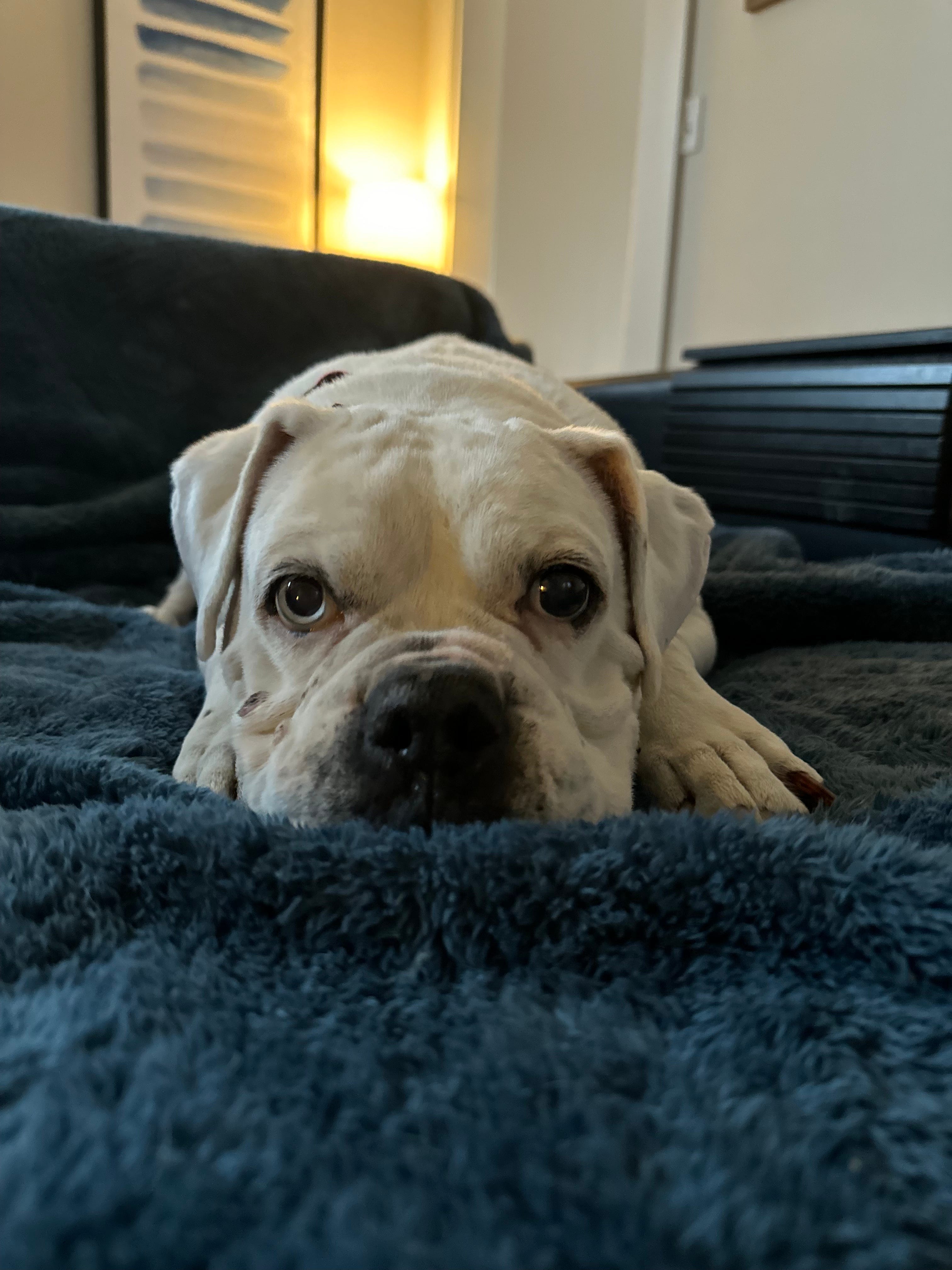



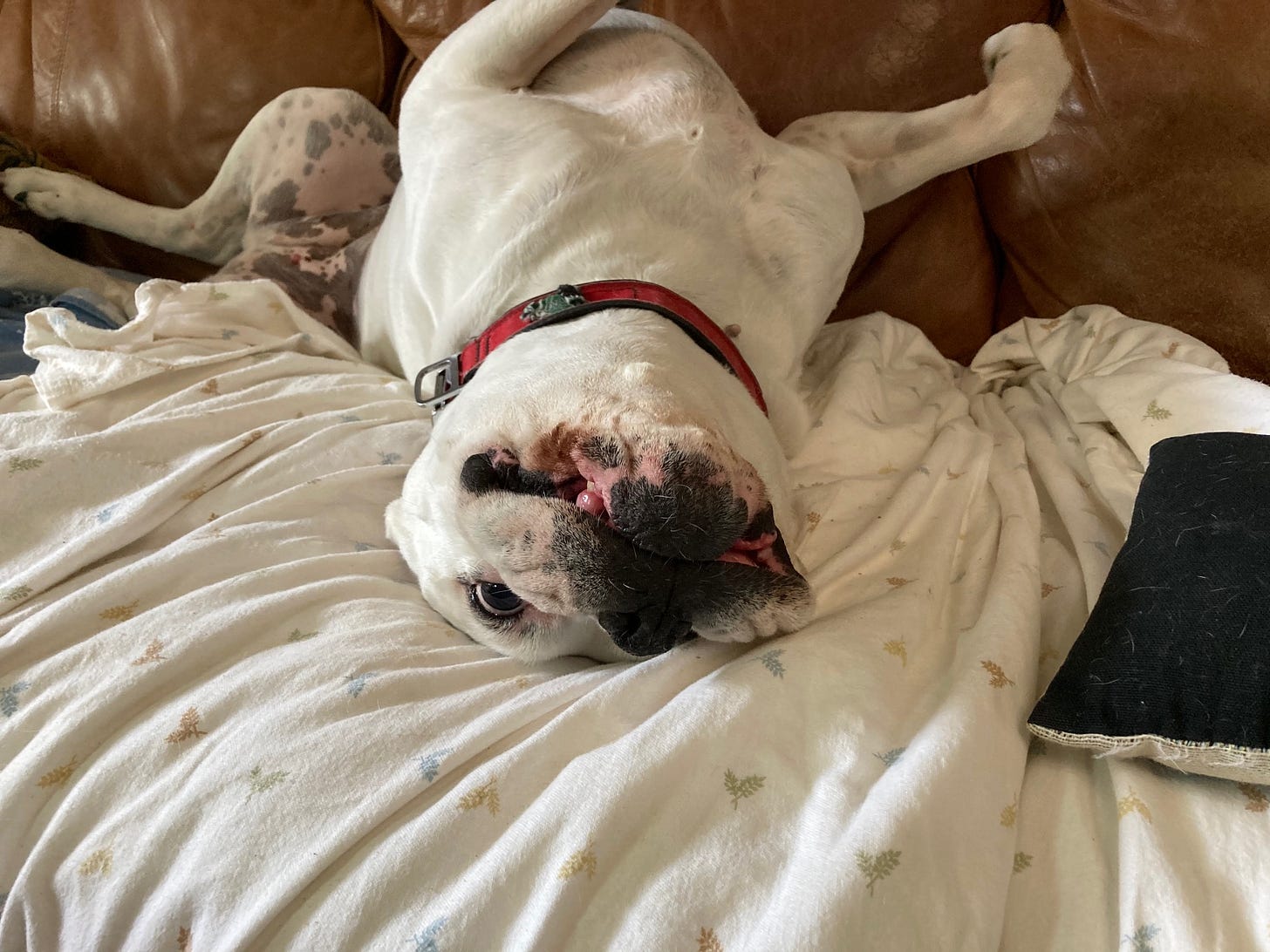
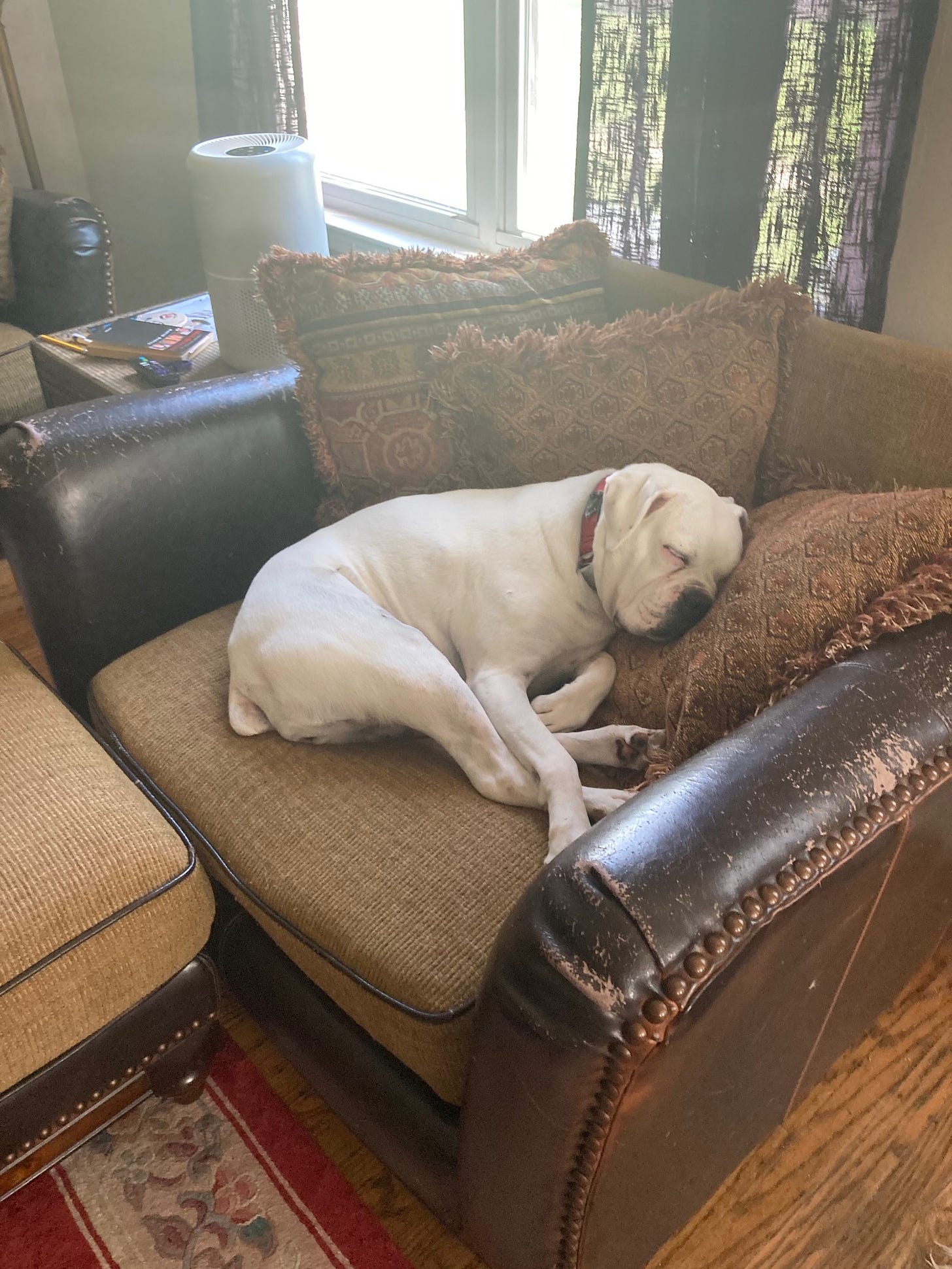
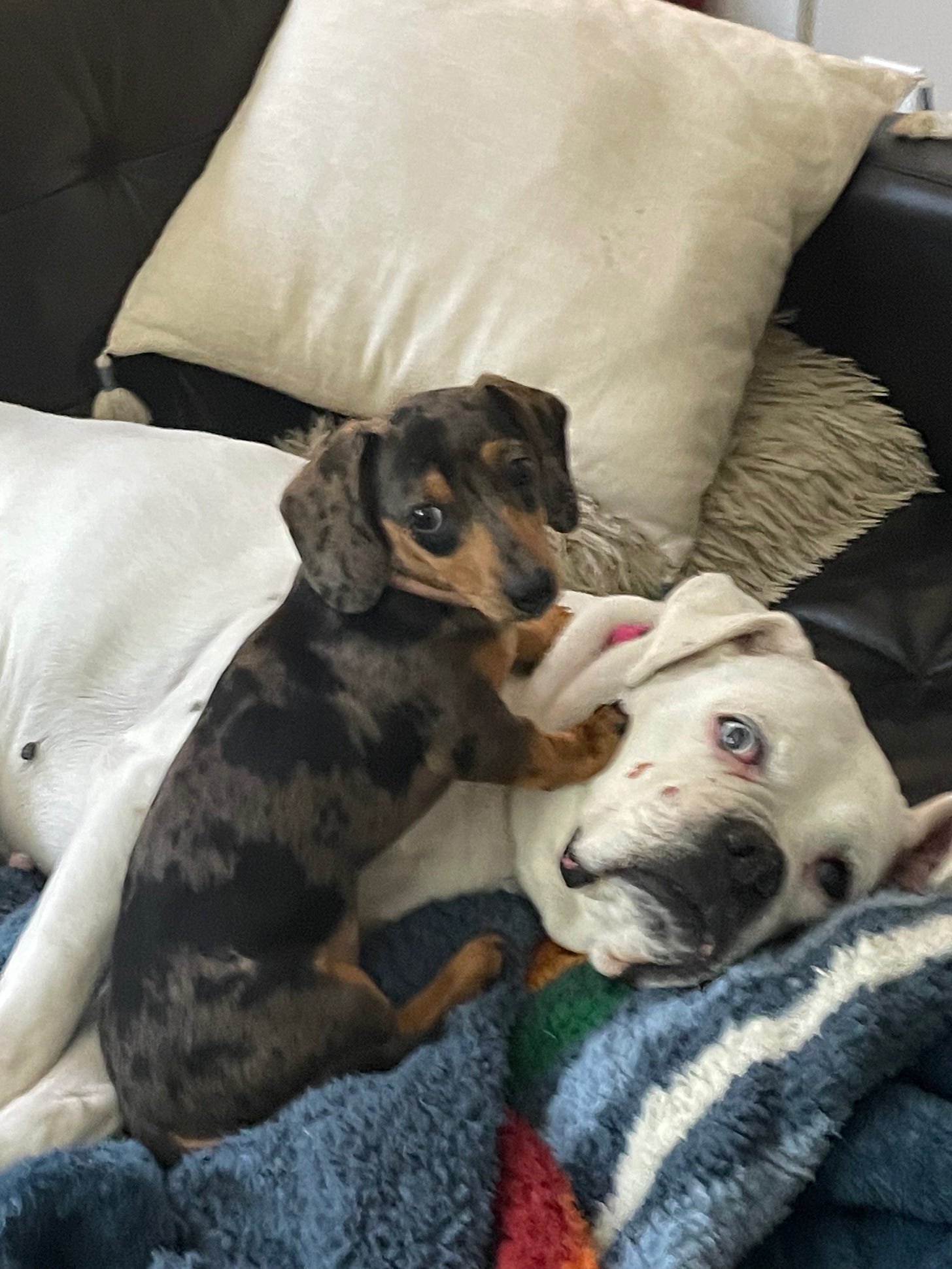
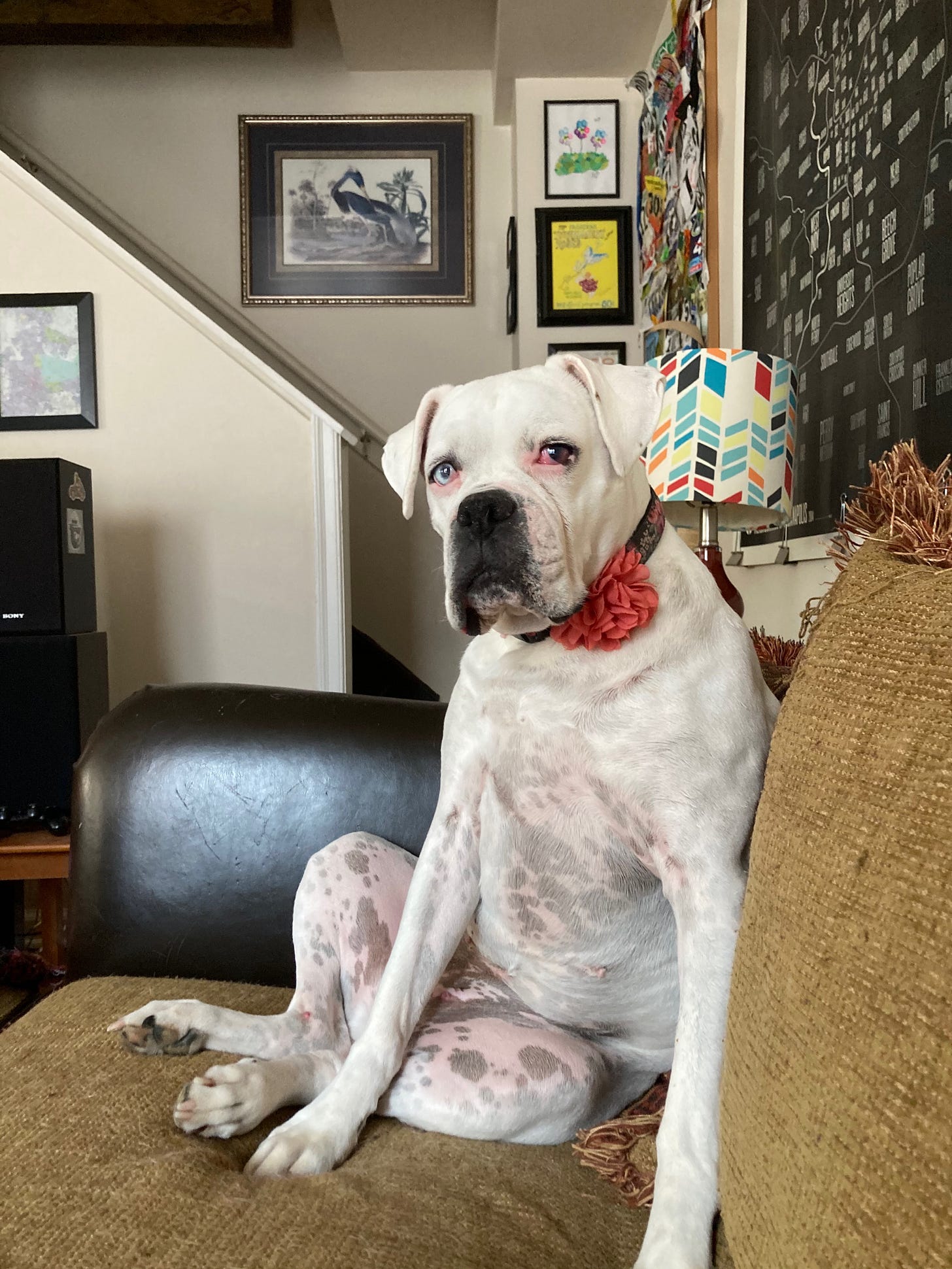
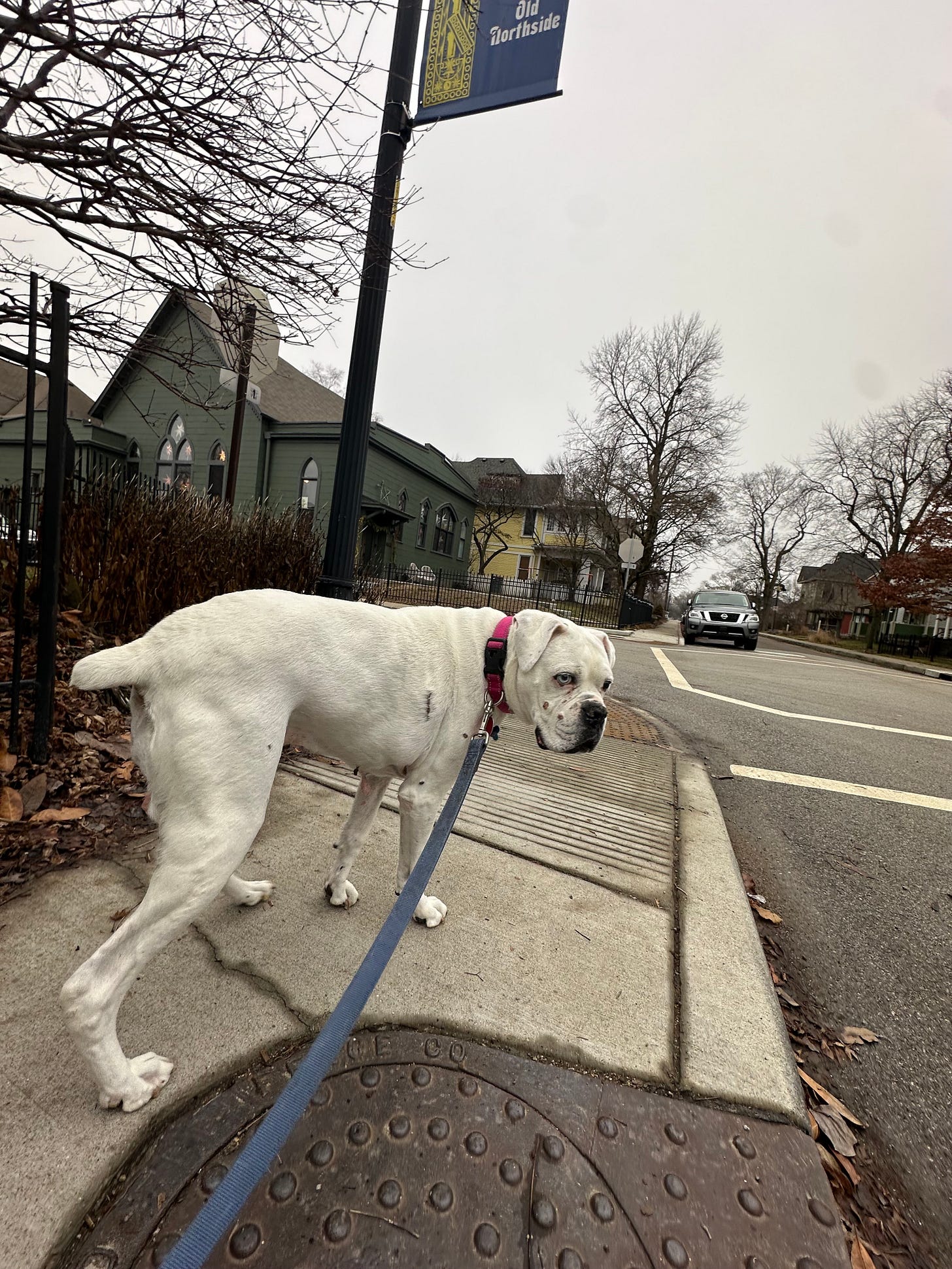
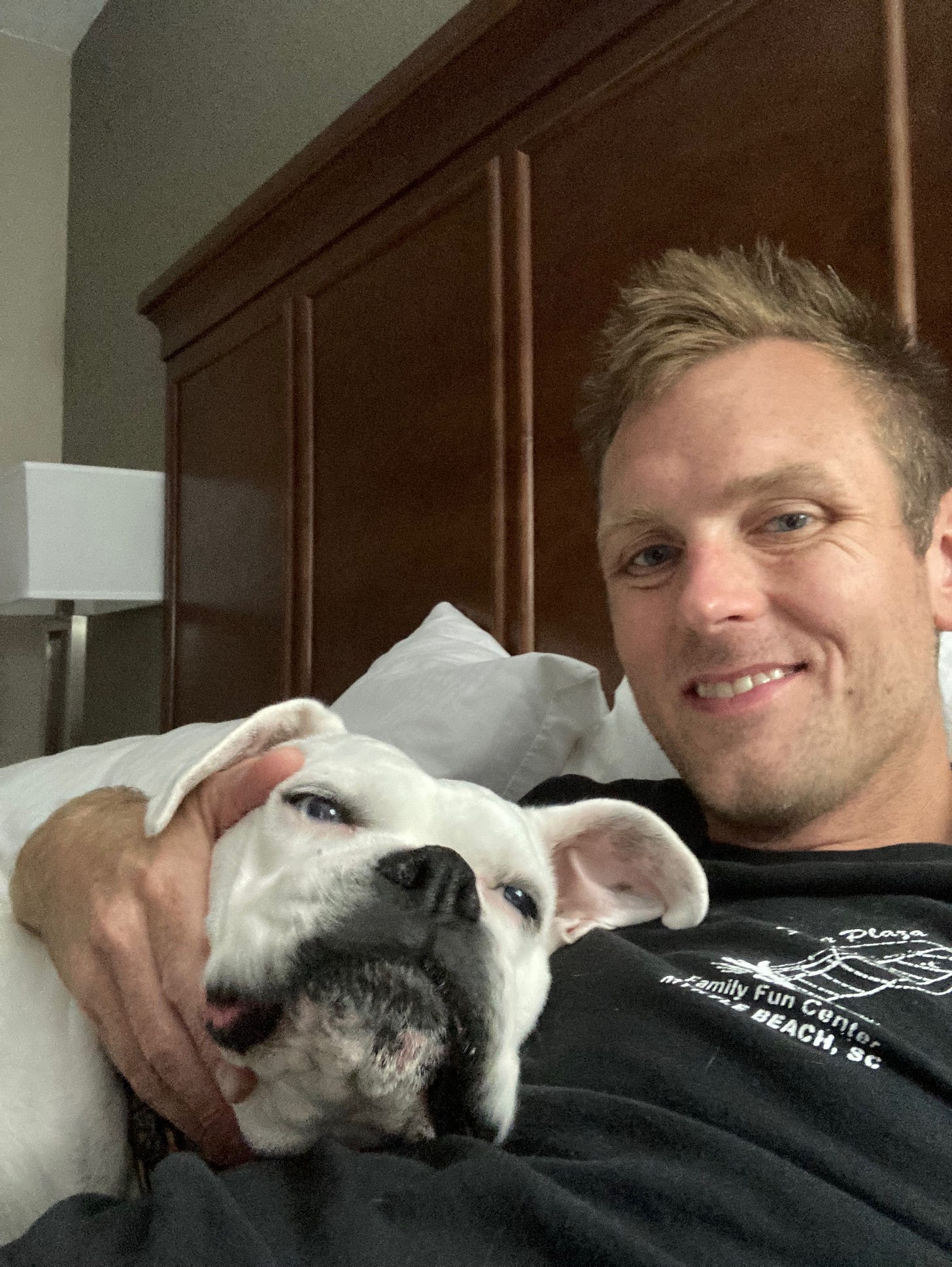


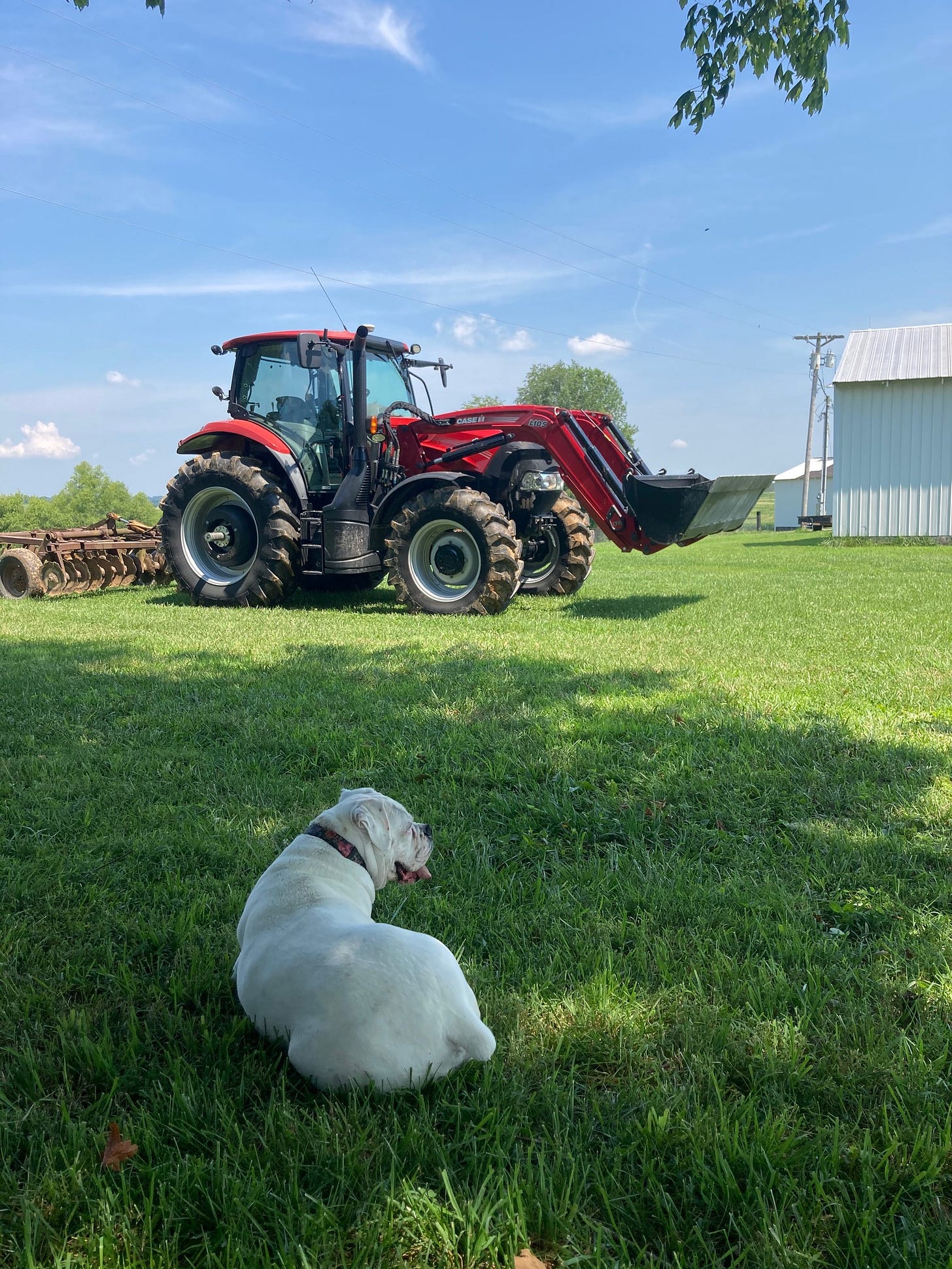

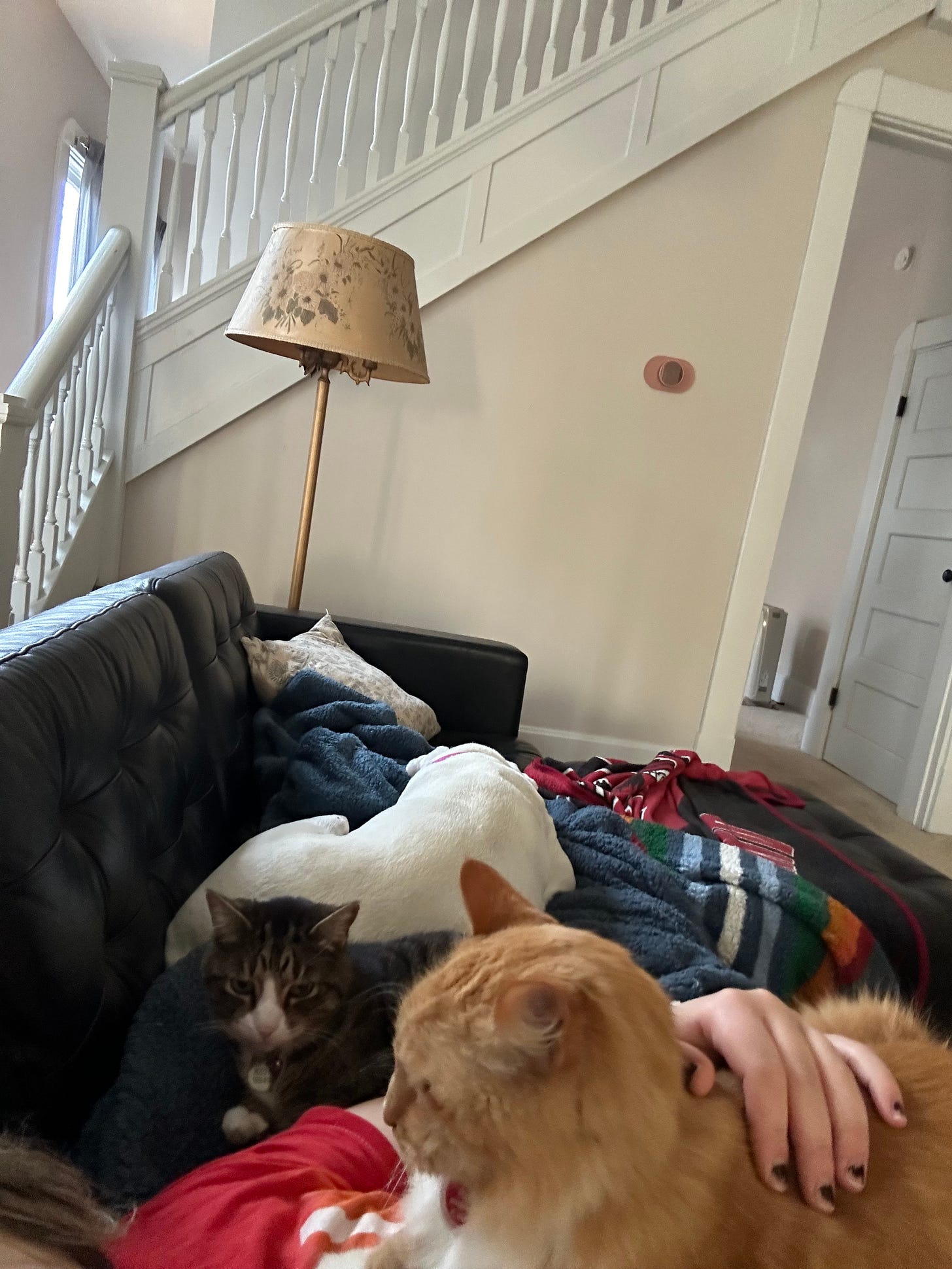
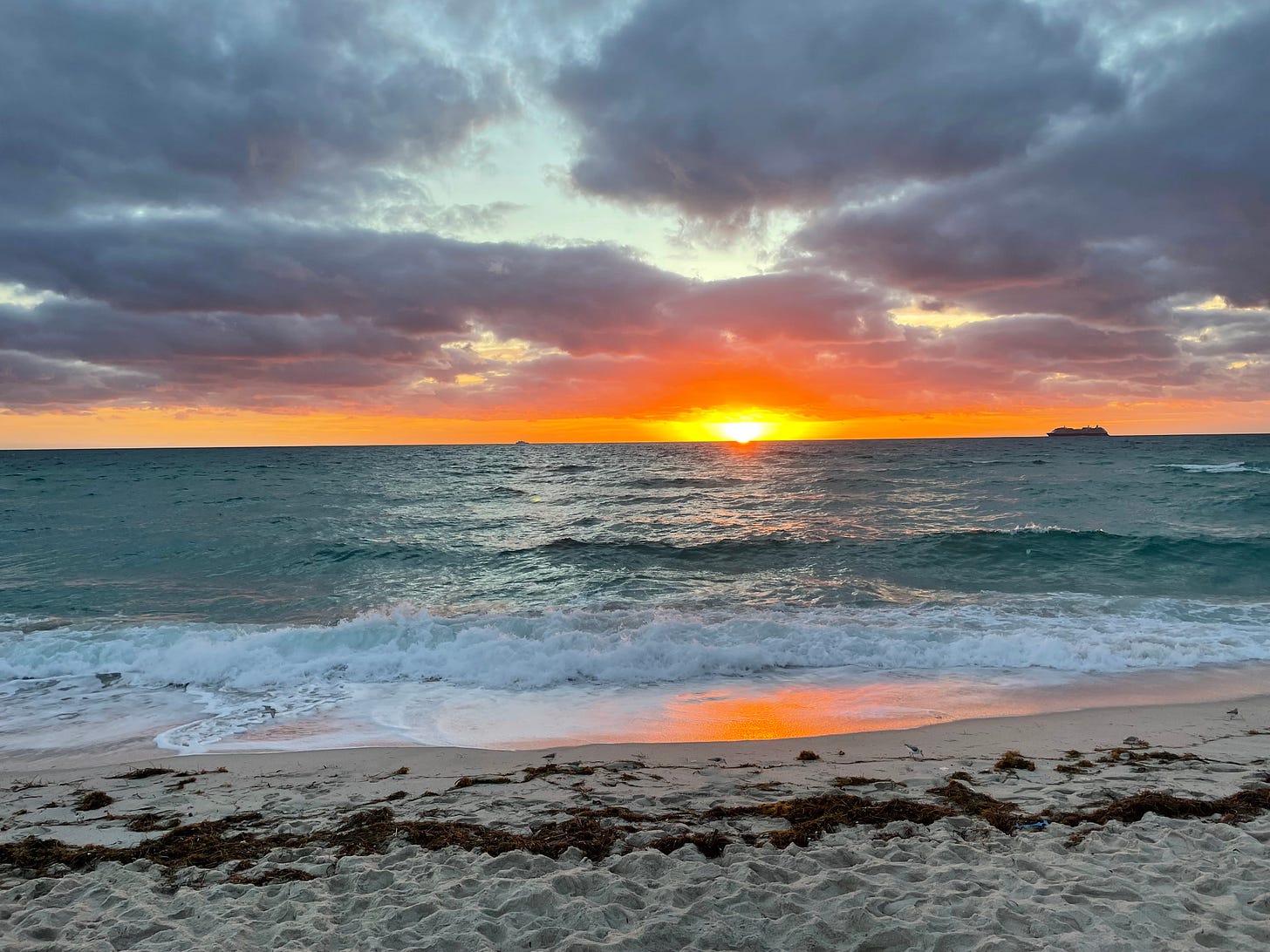

Sure loved her bunches! Will miss seeing that special gal❣️
The beginning of Joni's life sounds like more than enough suffering for one sweet dog to endure. She deserved so much better and found it with you. Though I only knew Joni for a short time before her passing, we were fast friends and she never failed to greet me with a wagging nub when she saw me. I really enjoyed spending time with the old girl and getting to know her sweet and quirky personality. I know her absence leaves a huge hole in your heart.